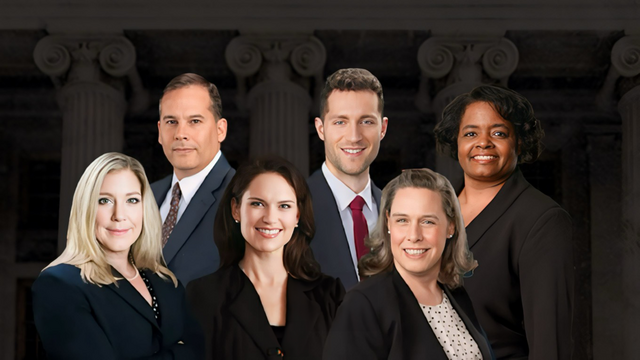Virginia Fraud Appeals
To appeal to the Virginia court of appeals, the individual must show that the court committed some kind of legal error and that the legal error committed by the court was significant enough that it likely affected the outcome of the verdict. Only people who plead not guilty and are found guilty by the court and appeal from the circuit court to the court of appeals need to prove a legal error.
The other Virginia fraud appeal scenario is if a person is appealing from the district court to the circuit court, there is no requirement of any error and therefore people in the district court could plead guilty and get a harsher sentence than they were expecting an appeal to the circuit court without issuing a warrant.
Anyone interested in appealing the initial verdict of their fraud case in Virginia should contact an experienced fraud lawyer to discuss the facts of their case. A Virginia fraud lawyer will have the knowledge of local laws necessary to appealing a court case.
Granting a Fraud Conviction Appeal
In Virginia, granting a fraud conviction appeal depends on what court in which the person is originally convicted. There are two levels of trial courts in Virginia, the district court and the circuit court. If someone in Virginia is charged and found guilty of a misdemeanor fraud charge in district court, then that person has an absolute right to appeal the case so that the circuit court will get the matter in a de novo matter.
When the circuit court hears the case, the court will try it as though nothing has happened before. This is very different from any appeal that might take place from the circuit court. If a person is convicted in the circuit court the next level of the court where they can appeal is the Virginia court of appeals.
Appealing a conviction from the circuit court to the court of appeals requires a showing that a legal error was made at a trial level. That means that the courts either allowed evidence that should not have been allowed or refused to allow evidence that should have been allowed or otherwise ruled against the defendant at trial in a way that was not legally proper.
Appeals Process
The appealing process for fraud cases in Virginia is appealing from the district court to the circuit court it is simply starting over with a brand new trial as if nothing happened in the district court.
Someone might not want to file an appeal if they are found guilty but given a lenient sentence, especially if this is in different court because if the person appeals to circuit court and are again found guilty, the circuit court can punish more harshly than the person was punished in district court and often that is what happens.
If a person is petitioning in the Court of Appeals from circuit court, the process is that that the lawyer must file the document with the court called a petition for appeal which lays out the grounds of the legal grounds where the attorney believes the trial court committed a legal error and the ways in which that legal error affected the case to the point where if the court did not commit legal error, the outcome of the trial would have been different.
If the petition for appeal is granted by the court and both sides the appellant which is the original defendant and the Commonwealth, also known in this process as the appellee, will file briefs to the court and then the court will schedule oral arguments where counsel for both sides will argue their case in front of the court of appeals.
When to Appeal
Fraud appeals to the court of appeals can be extremely costly and for that reason, a person should only appeal when an attorney has advised them that the person stands a good chance of success. The process is unique unto itself and only lawyers who have experience handling petitions to appeal to the court of appeals should be engaged in this type of litigation. The process is extraordinarily specific, meaning, the court of appeals has a very rigid set of rules that must be properly adhered to or the case can be thrown out before being hurt on the merits simply because of procedural or transactional error. Experience in appellant cases is absolutely critical. There can be no substitute for that level of experience.
Role of a Lawyer
Some people are wrongfully charged with fraud and it is always a defense attorney’s goal to prevent those people from being convicted. Through the course of the investigation, fraud lawyers will try to unearth evidence that proves the innocence of their client and enables the government to comfortably dismiss the charges without putting up too much of a fight.
However, there are cases where misunderstandings took place and a theft of some kind was innocently made or erroneously made. Those people can be convicted especially if they are not represented by capable counsel, unwilling to go the distance to prove their innocence. An experienced fraud lawyer handles the appeal entirely. Once a case is appealed, the only things that need to be done are proof of a legal error which is something that was entirely run by the attorney in the attorney’s office.




